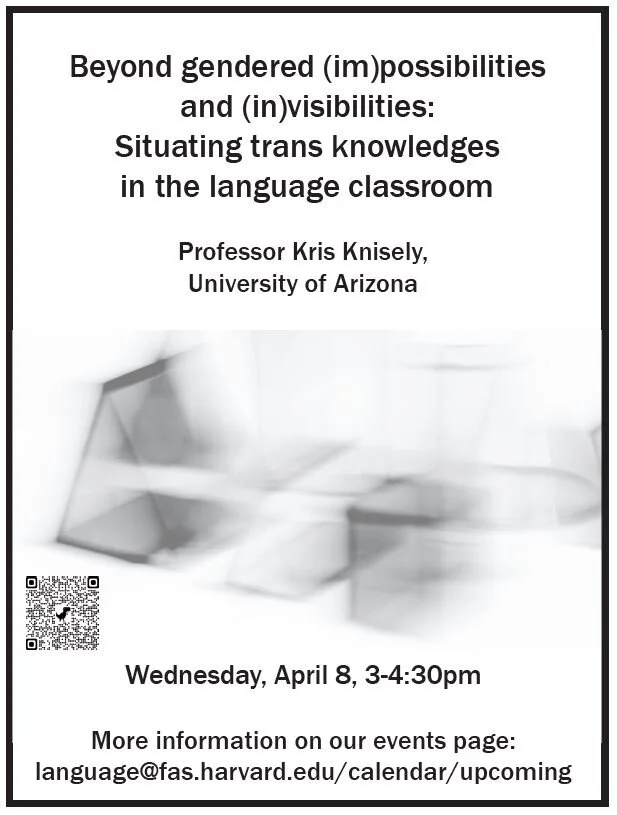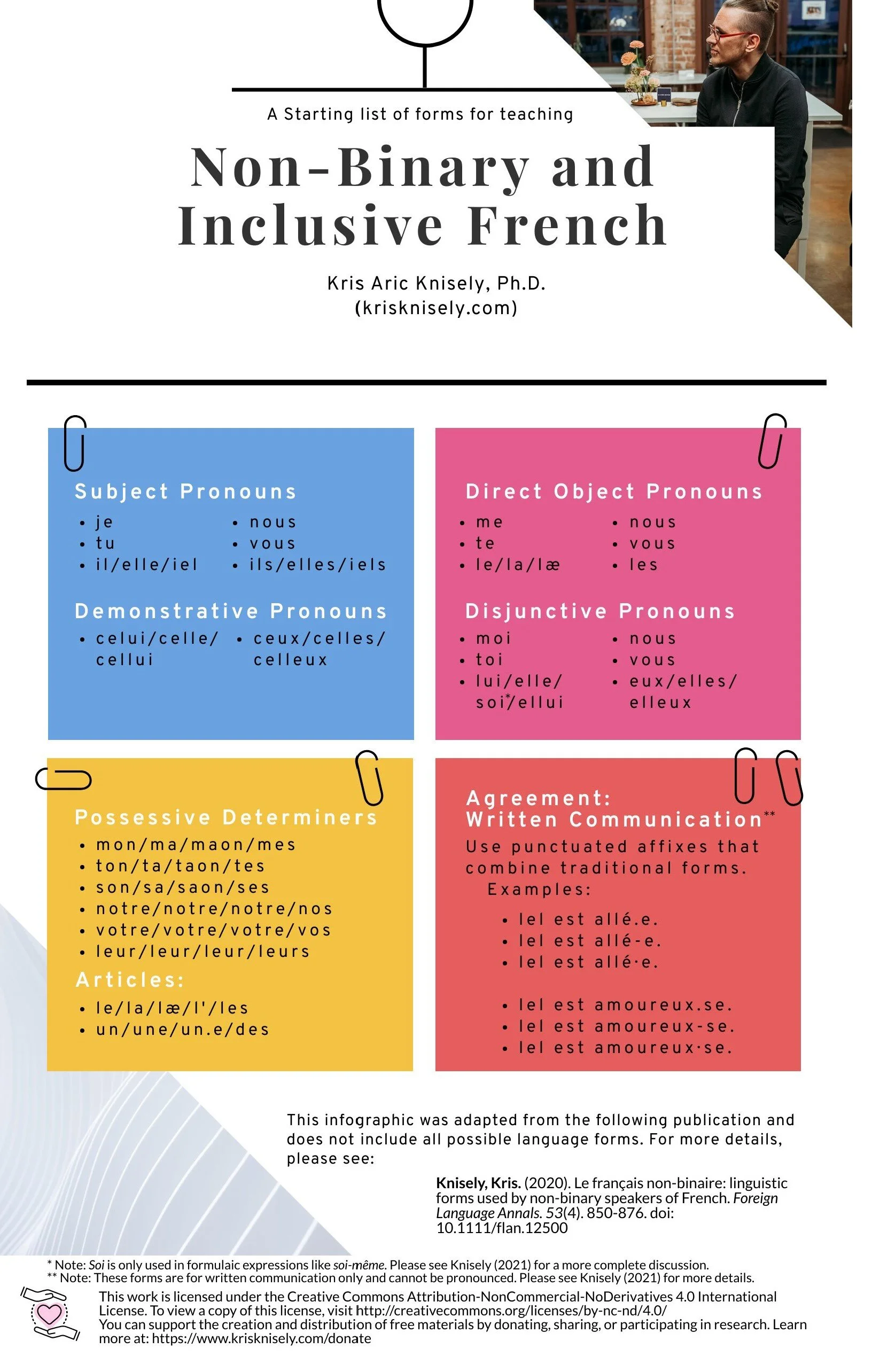Knisely, K. (April, 2021). Beyond gendered (im)possibilities and (in)visibilities: Situating trans knowledges in the language classroom. Harvard Language Center. Harvard University. Cambridge, MA. (Online).
Description: Language teaching and learning can be a site of expansive possibilities for identity (re)construction, despite the ways that gendered impossibilities and invisibilities have often been allowed to persist. In the context of scant attention to gender in the curriculum, textbooks, research, and pedagogy of language classrooms, this talk offers trans-affirming queer inquiry-based pedagogies as one path toward more critical, equitable, and gender-just language pedagogies.
Please see the publications page to view and request copies of my written work for your personal, private use. This includes the following readings, which I particularly recommend for anyone interested in continuing with the topics and themes of this talk.
Knisely, K. and Paiz, J.M. (2021) Bringing Trans, Non-binary, and Queer Understandings to Bear in Language Education. Critical Multilingualism Studies. 9.
This piece provides an introduction to trans-affirming queer inquiry-based pedagogies and illustrates how they offer one possible path toward increasingly just and equitable sites of language teaching and learning.
Knisely, K. (2021). L/G/B and T: Queer Excisions, Entailments, and Intersections. In J. Paiz & J. Coda (Eds.) Intersectional Perspectives on LGBTQ+ Issues in Language Teaching and Learning. Palgrave Macmillan.
This piece explores the relationships that exist between gender and sexuality, particularly as they have and continue to play out in the field of applied linguistics and advocates for an intersectional approach to understanding the positionalities of language users, learners, and teachers.
Knisely, K. (2021). Teaching trans: The Impetus for trans, non-binary, and gender non-conforming inclusivity in L2 classrooms. In K. Davidson, S. Johnson, & L. Randolph (Eds.) How We Take Action: Social Justice in K-16 Language Classrooms. Information Age.
This chapter is perhaps my most general piece, offering an introduction to thinking about queer inquiry-based pedagogies and a series of reflection questions for educators to think about where they are beginning with their knowledge of trans people, lives, and concerns and where they are beginning with thinking about what that means for their specific language classroom.
Knisely, K. (Forthcoming 2021). A Starter Kit for Rethinking TGNC Representation and Inclusion in French L2 Classrooms. In N. Meyer & E. Hoft-March (Eds.) Teaching Diversity and Inclusion: Examples from a French-Speaking Classroom. Routledge.
This chapter is a broad introduction to working with trans knowledges and language forms in the French language classroom.
Knisely, K. (2020). Le français non-binaire: linguistic forms used by non-binary speakers of French. Foreign Language Annals. 53(4), 850-876. doi: 10.1111/flan.12500
This article addresses the actual linguistic aspects of form creation, selection, and propagation of non-binary forms. It simultaneously considers the implications of these linguistic realities (including nascency, resistance, and plurality) for the teaching and learning of French and other languages with so-termed grammatically binary gender.
Knisely, K. (2020). Subverting the culturally unreadable: Understanding the self-positioning of non-binary speakers of French. The French Review. 94(2), 149-168.
This article considers how non-binary speakers of French self-position in specific linguistic and cultural landscapes and what that might mean for how we think about and understand various non-binary communities as (linguistic) co-cultures.
Additional recommended publications, authors, and organizations can be found on the partners & colleagues page. You will also find a number of resources for languages other than English and French on the above-linked handout and on the partners & colleagues page. Two general resources that I would particularly like to highlight for you are:
Spade, D. (2011). Some very basic tips for making higher education more accessible to trans students and rethinking how we talk about gendered bodies. Radical Teacher, 92(1), 57-62. This article is generally about teaching to trans students. Link to PDF: https://bit.ly/3abFXKA
Disclosure (2020 documentary, available on Netflix): http://www.disclosurethemovie.com/about This is not directly about teaching, but it can help create a different awareness of trans lives. I recommend this documentary in particular because it has a 100% trans cast, a trans director, and a majority trans crew. In this way it tells stories of trans lives via the voices/perspectives of actual trans people.
Please see the resources for educators page for numerous other resources, including but not limited to the below infographics:






